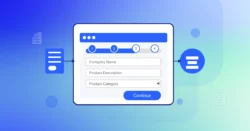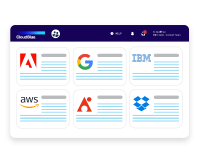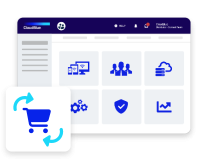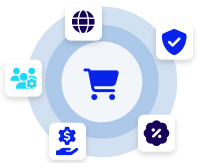A data silo is a collection of data that’s stored and managed by one team or department and isn’t easily accessible by others in the organization.
Imagine each team in a business keeping its data in separate “silos” that are difficult to integrate or share. While a data silo may seem harmless at first, it can quickly lead to inefficiencies and issues that affect a business’s overall performance. This isolation of information often occurs in larger companies or SaaS environments where different departments, like sales, marketing, and customer support, each use their own systems to store data. The problem with data silos is that they create fragmented data views, making it hard for decision-makers to see the full picture and act on it effectively.
Data silos can limit collaboration, inhibit productivity, and lead to missed opportunities, as essential data isn’t shared across teams that might benefit from it. In an ideal setup, data flows freely between departments, giving everyone access to the insights they need to make informed decisions.
Why are Data Silos Problematic?
Data silos are a common challenge, especially for SaaS companies where multiple software tools and systems often serve different parts of the business. One of the most problematic aspects of data silos is that they can create redundancy and inconsistencies in the data. For instance, if the sales team and customer support team each have their own records of customer information, any updates made in one department might not be reflected in the other, leading to outdated or inaccurate data. This lack of synchronization can ultimately hurt customer experiences and business outcomes.
Moreover, data silos create inefficiencies because employees may need to manually combine data from various sources, wasting valuable time and resources. The lack of a unified data structure also means that companies might miss out on valuable insights, as a holistic view of the data is often crucial for making effective decisions. This can hinder a business’s ability to compete in data-driven markets, where the speed and accuracy of insights matter.
Breaking Down Data Silos
Eliminating data silos requires a proactive approach and typically involves adopting modern data management practices and tools. SaaS companies often use data integration platforms to centralize and unify data, making it accessible across the organization. By establishing shared data standards, creating open channels for data exchange, and promoting cross-functional collaboration, companies can minimize silos and improve overall data flow.
Cloud-based data platforms, like data lakes or data warehouses, also provide ways for teams to access and use shared information effectively. Addressing data silos not only improves data accuracy but also supports better collaboration, quicker decision-making, and ultimately, a more agile business model. Companies that can break down these silos will be better positioned to leverage their data for growth and innovation.













